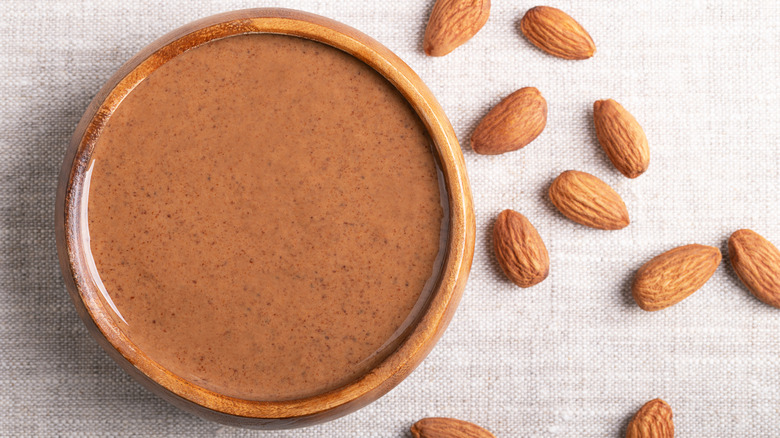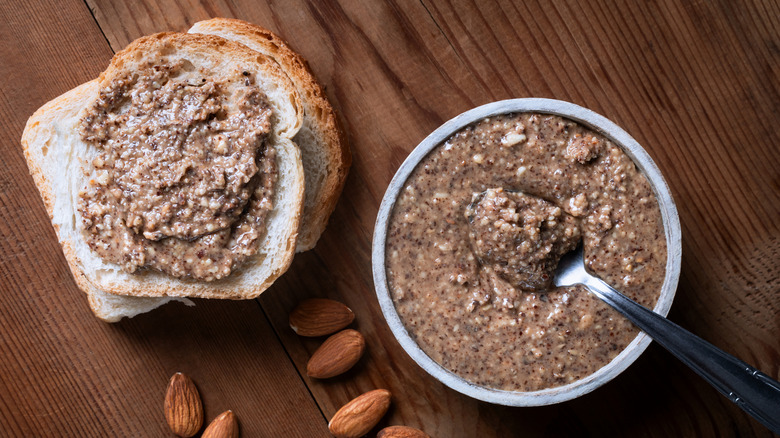How Long Does A Jar Of Almond Butter Last After Opening?
Given that it's rich in heart-healthy fats and packed with minerals and vitamins, there are plenty of reasons why you need almond butter in your pantry. However, once you twist open that jar of your favorite almond butter brand, how long does it last? A general rule of thumb is that most store-bought almond butters last three to five months in the pantry and nine months in the fridge. That being said, various factors can impact your almond butter's exact shelf life.
If you're making your almond butter from scratch, homemade almond butter typically only lasts two weeks due to the lack of additives such as preservatives. On that note, if you're the type to veer towards the organic aisle in your local supermarket, your choice of almond butter might have a shorter shelf life. More natural almond butters contain few ingredients outside of the titular nut. So, always defer to your almond butter's expiration date and be aware of signs of spoilage.
When it's gone bad, almond butter often has some pretty obvious tells. Any changes to your butter's regular color are a sign of spoilage, as is the presence of mold. Almond butter also tends to get grainy and dry over time, a surefire sign it's time to grab a new jar. Sometimes, however, almond butter might appear normal but harbor an unpleasant odor and slightly off taste. If you notice these signs, it's best to opt for a fresh jar.
How can you make almond butter last longer?
One mistake everyone makes with almond butter is not refrigerating it to begin with. Refrigerating your butter as soon as you open it can help it last a few more months than it would sitting in the pantry. It's also possible to freeze almond butter in a sealable, airtight container or bag. When frozen, almond butter can last as long as six months.
There are also a few best practices to keep in mind when storing your almond butter that can potentially extend its shelf life. Over time, bits of butter and other debris build up along the jar's rim, so wipe down the lid after each use. Make sure the lid is secured tightly too, as a loose lid can let in air and bacteria that expedite decay. When you're scooping almond butter, make sure to use a clean utensil every time to avoid cross-contamination with more perishable foods.
With nut butters, oils tend to separate from the butter itself. While this is a completely normal process, it can cause almond butter to dry out and potentially spoil faster. For optimal oil distribution, try storing your almond butter upside down.

